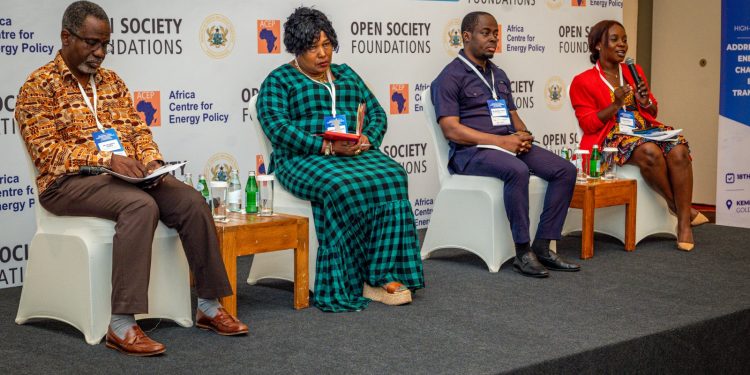Nana Yaa Jantuah Calls for Full Audit of Energy Sector Debt Discrepancies
A senior official at the Presidency has called for an urgent and comprehensive audit of Ghana’s energy sector liabilities, as concerns mount over the sector’s mounting debt, fiscal opacity, and its growing strain on the national budget.
Speaking at a high-level policy dialogue on Ghana’s energy sector and economic transformation, Nana Yaa Jantuah, a Presidential Staffer and former Director of Public Relations and External Affairs at the Public Utilities Regulatory Commission (PURC), questioned the consistency and credibility of official data on energy sector indebtedness.
“Today, we have $1.3 billion. Tomorrow, we have $3 billion. Who is not doing their accounting very well?” Ms Jantuah queried. “It is imperative that we go back into the books and interrogate what the actual figures are.”
Her comments come as legacy energy sector debt, compounded by persistent revenue shortfalls, forex volatility, and regulatory inefficiencies, continues to undermine the financial sustainability of power utilities such as ECG.
Ms Jantuah, who described electricity as “the nerve of the economy”, warned that the inability to address revenue collection inefficiencies and enforce compliance with regulatory key performance indicators (KPIs) risks collapsing the power distribution chain — from ECG and NEDCo to bulk suppliers and independent power producers (IPPs).
Citing industry practices, she lamented chronic shortfalls in tariff collection and rising system losses that regularly exceed approved regulatory benchmarks. “There is a loss benchmark built into the tariff, which is 21%, but ECG always goes overboard,” she said. “If the utilities don’t collect, the sector collapses.”
She also acknowledged structural difficulties in certain geographies that make collections challenging, but maintained that utilities must still be held accountable. “Sometimes it’s not about bad payers. It’s about a lack of diligence to collect,” she stressed.
On the matter of subsidies, Ms Jantuah welcomed recent efforts by the Energy Ministry to avoid ad hoc subsidies that previously distorted utility finances. “I am glad that in the last two tariff cycles, the minister hasn’t asked for subsidies to override PURC tariffs,” she said.
Her remarks also revisited the role of the Energy Sector Levies Act (ESLA), originally established to resolve legacy debts. Ms Jantuah argued that political interference had undermined the law’s intent. “We need to take the politics out. ESLA was meant to deal with legacy debt, but it ended up being used for something else,” she noted.
With energy sector debt consuming as much as 2% of Ghana’s GDP, Ms Jantuah concluded by advocating for deeper fiscal discipline, robust regulatory enforcement, and depoliticisation of utility oversight.
“The time has come for us to get to the fundamentals, interrogate the debt, and put in place real regulatory KPIs,” she said. “If we do not, the sector will remain a drag on economic transformation no matter how many hours the lights stay on.”








